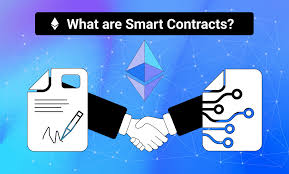
A smart contract is a self-executing contract with the terms of the agreement between buyer and seller being directly written into lines of code. The code and the agreements contained therein exist on a blockchain network, and once the conditions of the contract are met, the contract executes automatically.
Smart contracts were first proposed by Nick Szabo in 1994, but it wasn’t until the advent of blockchain technology that smart contracts became a reality. Smart contracts are now a core feature of many blockchain platforms, including Ethereum, EOS, and Tron.
Example of a Smart Contract
One example of a smart contract is a decentralized exchange (DEX) smart contract. DEXs allow users to trade cryptocurrencies without the need for a centralized intermediary. Instead, trades are facilitated by a smart contract that exists on a blockchain network.
When a user wants to trade a cryptocurrency on a DEX, they send their cryptocurrency to the smart contract. The smart contract then holds the cryptocurrency until a matching trade is found. Once a matching trade is found, the smart contract automatically executes the trade and sends the appropriate amount of cryptocurrency to each party.
Leave a Reply